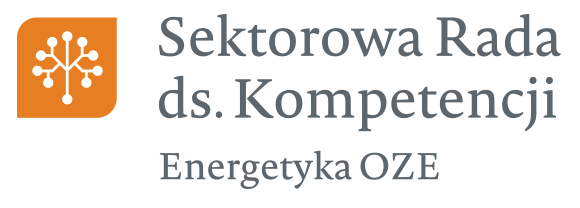Sektorowa Rada ds. Kompetencji – Energetyka OZE

ul. Rondo Daszyńskiego 2B

bok[.+.]hubid.org

+48 601 94 1111
Plan of actions
To effectively implement the strategy of the Sectoral Competence Council in the renewable energy sector, a systematic approach is required, including market analysis, implementation of tailored educational programs, and monitoring of results. The action plan is based on five key pillars:
Competency Analysis of the Renewable Energy Sector
• Conduct a comprehensive labor market study regarding current and future competency needs in the renewable energy sector.
• Analyze the competency gap – comparing available qualifications with employer requirements.
• Prepare a sector report on technological trends and their impact on employment.
• Conduct consultations with representatives of companies, educational institutions, and public administration to verify research results.
Organization of Workshops, Conferences, and Educational Activities
• Organize cyclical industry meetings to discuss key challenges related to competence development.
• Conduct workshops for employers and educators presenting best practices in workforce training for renewable energy.
• Run informational campaigns on professional development opportunities in the renewable energy industry.
• Support educational initiatives such as hackathons, industry training sessions, and thematic webinars.
Adapting the Education System to the Needs of the Renewable Energy Sector
• Cooperate with universities and vocational schools to update curricula according to industry needs.
• Develop recommendations for the Ministry of Education and other institutions regarding changes in vocational and higher education systems.
• Promote practical teaching, including the dual education model and internships in renewable energy companies.
• Create mentoring programs where experienced industry specialists share knowledge with future employees.
Developing and Implementing New Training Programs
• Develop specialized courses and certifications for key professions in the renewable energy sector (e.g., renewable energy installation technician, renewable energy engineer).
• Support e-learning platforms and online training that enable skill acquisition regardless of location.
• Collaborate with training companies and industry organizations to certify new educational pathways.
• Introduce modules on soft skills such as project management, analytical skills, and innovation.
Monitoring and Evaluation of Implemented Actions
• Develop a system to measure the effectiveness of initiatives, including satisfaction surveys of training and workshop participants.
• Regularly report progress and update the strategy based on market analysis results.
• Cooperate with enterprises to assess how well new qualifications match sector needs.
• Organize summary meetings aimed at evaluating the effectiveness of implemented actions and identifying areas for further development.
